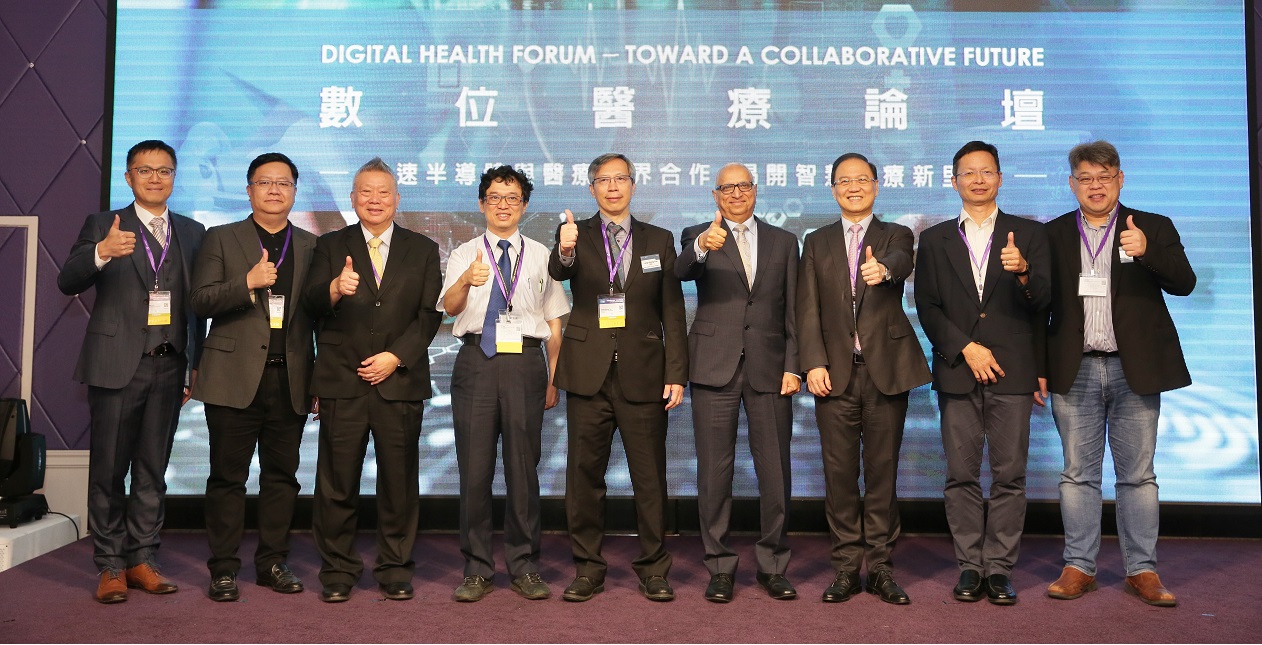Collaboration between Taiwan's Semiconductor and Biomedical Industries to Tap Potential Business Opportunities in Digital Health
SEMI and BioMed Taiwan jointly organized the first “Digital Health Forum- Toward a Collaborative Future,” which was held on September 7.

SEMI and BioMed Taiwan jointly organized the first “Digital Health Forum- Toward a Collaborative Future,” which was held on September 7. This forum highlighted the opportunities for cooperation across multiple disciplines within Taiwan’s semiconductor and biomedical industries, thereby providing a springboard for participation in the global digital health business.
Frost & Sullivan (F&S) predicted that nations in the Asia-Pacific will take the lead in smart hospital projects and that AI will become crucial in the development of the imaging diagnostics segment. A recent F&S market research report indicated that digital health will be a rapidly growing segment in the healthcare industry, exhibiting a CAGR of 10.3% between 2017 and 2021. Market revenue, which is estimated to hit US$132.97 billion in 2018, is expected to swell to $181.68 billion in 2021.
SEMI CEO Mr. Ajit Manocha said that Taiwan is home to competitive ICT manufacturers and a comprehensive semiconductor supply chain. Combined with advantages including a well-established medical services infrastructure and an excellent pool of talent in medical science, Taiwan is poised to develop a globally competitive digital health industry featuring next generation technologies.
BioMed Taiwan CEO Dr. Dar-Bin Shieh, who also serves as Deputy Minister of the Ministry of Science and Technology, mentioned that the government has been working to integrate Taiwan’s abundant biomedical R&D resources with the competitive advantages of its semiconductor industry and ICT manufacturing services. This, together with big data and AI, will help pave the way for Taiwan to become a digital health hub of innovation in the region.
The government formulated a strategy in 2017 to foster the development of AI, while at the same time introducing five action plans, including Project Moonshot, AI Robot Maker Space, and the Grand Challenge, to enhance infrastructure and underpin an improvement in the overall competitiveness of the industry in AI. Several leading Taiwanese IT firms, such as ASUS, Advantech, Imedtac, and Omni Health have released impressive advances in digital health-related technologies and products. These developments are providing the foundation in getting ahead of the anticipated explosive growth in the digital health sector and the huge potential business opportunities it presents.
The forum was the first open dialogue between Taiwan’s semiconductor and biomedical industries, and close collaboration among the sectors is expected to yield industrial restructuring and upgrading that will generate thriving business in the area of digital health.
Dr. Chung-Yu Wu, Professor at National Chiao Tung University; Dr. Long-Sheng Fan, CEO of Iridium Medical Technology Co.; Dr. Ted Chang, CTO and Vice President of Quanta Computer Inc.; Dr. Johnsee Lee, Founder and CEO of Personal Genomics Inc.; and Dr. Alex Wang, President of Powerchip Technology Corp., were invited to share their experiences and knowledge in medical implant devices, neurological sensors, smart medicine, gene chips, and wearable vital sign monitors.
A panel discussion was held following the addresses with the aim of leveraging resources and the strengths of the biomedical and ICT industries. Participants in this event were Dr. Dar-Bin Shieh, CEO of BioMed Taiwan; Dr. Chii-Wann Lin, General Director of ITRI’s Biomedical Technology and Device Research Labs; and Dr. Pan-Chyr Yang, Chairman of the Taiwan Bio-Development Foundation.